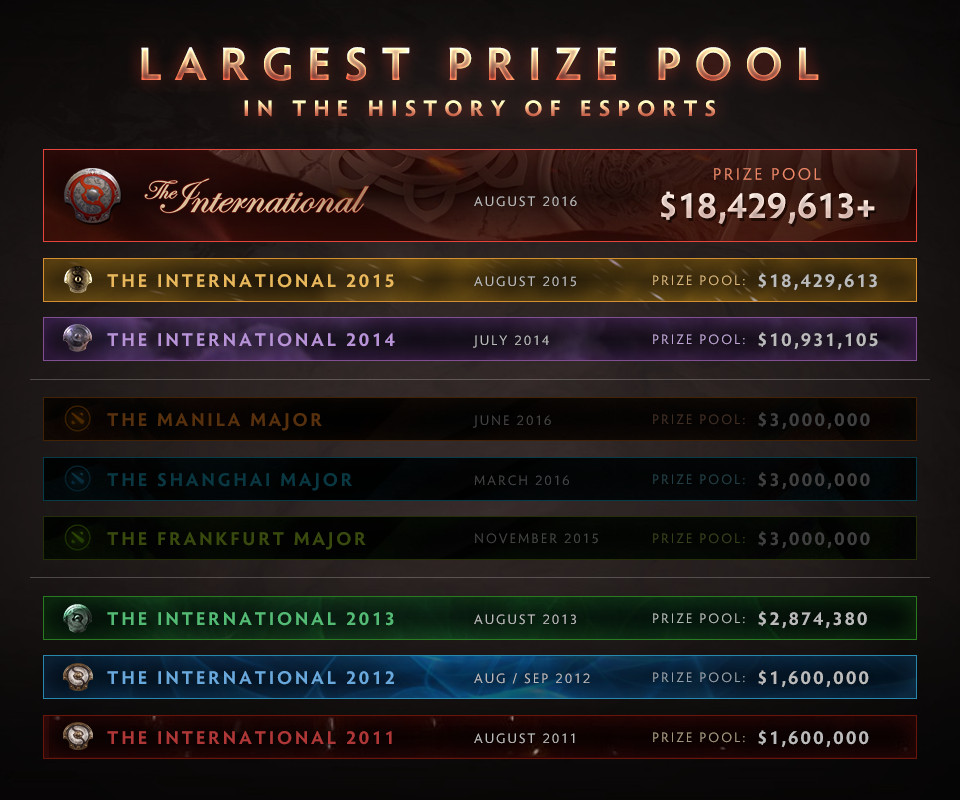I was eating dim sum with a group of friends and friends of friends on Saturday morning. Someone asked me, “Do you think that Dota will continue to grow? Will the prizepool for that big tournament [TI] get bigger every year, or will it reach a point where it levels off?”
Esports have been the big thing for a couple of years now. It’s a fast-growing market. For all intents and purposes, it looks like Dota is on the up and up–prize pools, coverage, and mainstream media interest are expanding across the board.
But let’s not forget about Starcraft. It was huge in 2010-2013. SC2 helped make Twitch what it is today. But after 2013-2014, other games like League and Dota took center stage. Starcraft’s viewership dropped, fewer tournaments were held, and the sport kind of petered out. The high-profile scandal involving Life hasn’t helped, either. Starcraft is seen as a relic of the past to many newer esports fans–it might’ve been one of the first, but for a variety of reasons, it didn’t have the staying power that fans and players thought it did.
If you spend enough time on Reddit, you’re bound to find posts loudly announcing the impending death of Dota, a claim that’s allegedly supported by a percentage drop in the unique player count between this month and previous ones. In other words, the occasional LoL or CS:GO troll likes to rile up the Dota base by claiming that the sport is on its way out. The problem is, many people use the prize pool of the International as a metric for the popularity of the game. If Valve releases a crap compendium one year for TI, sales will dip and the prizepool won’t grow as large. If every hugely popular team undergoes disastrous roster shuffles and TI is filled with lesser-known squads, the prizepool won’t grow as large.

Even if the TI prize pool decreases or levels off, would it actually mean that Dota as an esport is dead?
Completely unchecked growth is unsustainable and leads to wonderful events like the 2008 financial crisis. It’s not realistic to think that the prizepool will smash records year after year for a decade. As much as it’s cool that esports are getting more recognition, the sport will probably be considered “niche” along with the likes of professional tennis, skateboarding, or boat racing for at least a few more years. That actually bodes better, in my opinion, for dealing with the inevitable ups and downs of popularity. Hardcore fans probably won’t desert Dota, and the prizepool will always grow past the base level. Unlike the Harlem Shake, Dota won’t burn itself out in a flash.
You May Like
What does success for Dota look like?
Do we want 100 million unique players per month? A prize pool that exceeds the income of a third string NFL quarterback? Success, to me, looks like a solid player/viewerbase, a decent enclave of sponsors, and well-run tournaments that are exciting to watch. We don’t need to compete with the Portland Trailblazers for airtime on ESPN.
I think Dota has more longevity than Starcraft II. Unlike SC2, no single region is currently dominating tournaments. In fact, the Aegis of Champions has been exchanged between Western and Chinese teams every year. The Majors continue to have excellent attendance and online viewership.
There are a lot of Dota stories yet to be told. I don’t think that The International’s prizepool is going to stagnate any time soon.
















